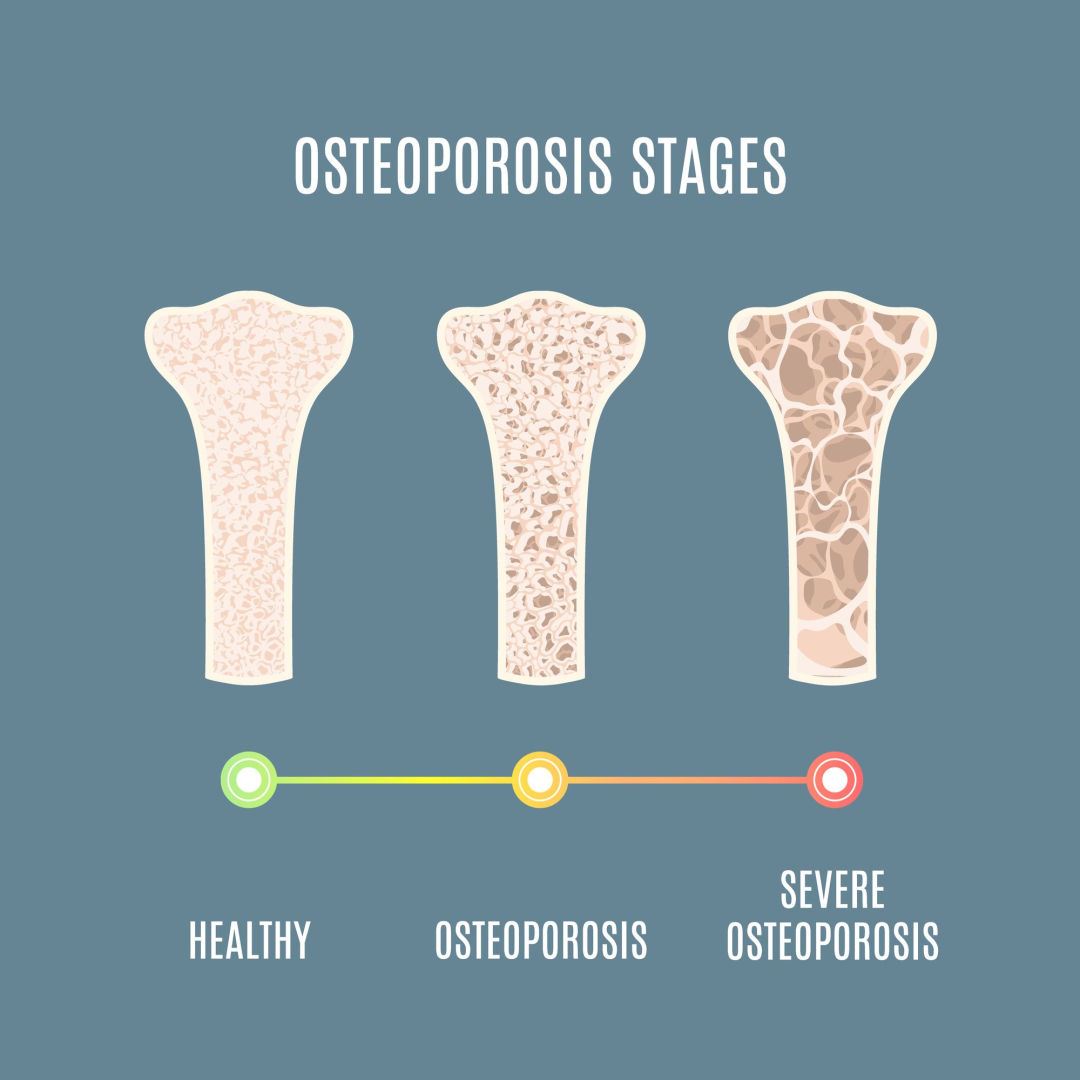Osteoporosis and Aging Bone Health
- Category: Blog
- Posted On:

An estimated 54 million Americans have osteoporosis or low bone mass, causing over 2.3 million fractures each year in older adults. Loss of bone mass starts around the age of 35. Fortunately, there is a lot you can do to prevent fragility fractures. Some things that can help are a balanced diet, exercise, medications, adequate vitamin D supplementation and the BHS Primary Care team.
What is Osteoporosis?
Osteoporosis is a common metabolic bone disease that occurs when the body loses too much bone, makes too little bone, or both. The result is weak bone that may break or fracture from a simple fall or, in severe cases, from simply sneezing, reaching upwards, or embracing a loved one.

What causes Osteoporosis?
There are many things that can cause osteoporosis to develop over the course of a persons life. Certain medications, lack of calcium over time, certain diseases, like cancer, eating disorders, digestive/GI disorders, and endocrine and autoimmune disorders are among the reasons someone may develop osteoporosis.
What are the symptoms of Osteoporosis?
Osteoporosis is a condition that causes bones to become weak and brittle, making them more susceptible to fractures (broken bones). The most common signs and symptoms of osteoporosis include:
- Back pain, caused by a collapsed vertebra
- Loss of height over time
- A stooped posture
- Fractures (broken bones) that occur more easily than expected, such as after a minor bump or fall
- Decreased mobility and flexibility
It's important to note that osteoporosis often develops without any obvious symptoms, which is why it is sometimes referred to as a "silent disease." Regular bone density scans and tests can help detect the condition early and prevent serious complications.
How to treat Osteoporosis?
While osteoporosis can't be completely cured, there are medications available to help slow down bone loss. Your provider can work with you to develop a plan including lifestyle changes and possibly medication to help with bone density and limit the chance of bone fracture.
How to prevent Osteoporosis?
The human bones are living tissue that can change over time. There are many things that can be easily integrated into daily life that help prevent osteoporosis.
- Eat foods to support bone health. Think protein, calcium, and vitamin D.
- Incorporate exercise into daily life, like walking and weight training.
- Don't smoke and limit alcohol consumption.
If you are concerned about developing osteoporosis, talking to your primary care doctor is the first step you should take. Need to schedule an appointment with BHS Primary Care or need help finding a doc near you? Call 833-602-CARE (2273) or click here.



